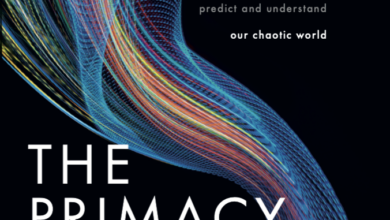£15 Million AI Climate Change Grant for the University of Southampton • Watts Up With That?

Essay by Eric Worrall
In addition to a £31 million “Trustworthy AI” grant.
University of Southampton receives £15m AI funding from government
By Curtis Lancaster
BBC News
A university has been given £15m for a training centre aimed at developing artificial intelligence to tackle climate change.
The government funding was awarded to the University of Southampton in the hope of training at least 70 PhD students.
They will learn to use an AI technology that works on sustainability, called SustAI, the university said.
It was also awarded £31m in June towards developing trustworthy AI.
…
Read more: https://www.bbc.com/news/uk-england-hampshire-67277518
The university press release;
Southampton awarded millions to lead Britain’s AI revolution
Published: 31 October 2023
Southampton will be at the forefront of government plans to make the UK a leading force for artificial intelligence after it was awarded millions of pounds.
A new £15million training centre at the University of Southampton will be tasked with nurturing British tech talent and developing AI to tackle climate change.
The funding package, which includes £8million from UK Research and Innovation (UKRI), will forge the new AI Centre for Doctoral Training in AI for Sustainability, known as SustAI.
It will train at least 70 PhD students in sustainable AI, with plans to advance the tech for use across renewable energy and reducing carbon emissions.
SustAI director Professor Enrico Gerding, from the University of Southampton, said: “Environmental sustainability is one of the greatest challenges our world is facing – and many countries are setting ambitious targets to reduce emissions and increase renewable energy production.
“AI will be key to achieving these targets and, through SustAI, we will nurture the next generation of researchers, engineers and technologists who will be trained to create a sustainable future using AI.”
The £15million SustAI centre was announced ahead of this week’s AI safety summit, held at the famed Bletchley Park estate, which intends to fuel the UK’s ambitions to be a tech superpower.
It comes just months after Southampton was awarded £31million, also from UKRI, to launch the Responsible AI UK consortium to develop trustworthy artificial intelligence.
Associate Professor Dr Lindsay-Marie Armstrong, from the SustAI team, added: “Sustainability is at the heart of the centre, both in its research and ethos. We will equip our students with the ability to transform academic research and make a real change to businesses and society.”
More than ten other training facilities across Britain were also announced by UKRI, as part of a £117million package, all aimed at developing artificial intelligence.
UKRI chief executive Professor Dame Ottoline Leyser said the UK is in a strong position to harness the power of AI to transform many aspects of our lives for the better.
She added: “Crucial to this endeavour is nurturing the talented people and teams we need to apply AI to a broad spectrum of challenges, from healthy aging to sustainable agriculture, ensuring its responsible and trustworthy adoption.”
Applications for students to enrol onto the University of Southampton centre will open soon – ready for the start of the 2024 academic year.
Get the latest updates about SustAI by signing up to its enewsletter.
Or contact the SustAI team at [email protected].
I doubt applying AI to sustainability goals will achieve much, any more than applying “Quantum Computing” to climate goals will achieve.
AI is good at optimisation problems, for example the AI in your automobile satellite navigation system can figure out an optimal route to your destination much faster than a human can.
But the fundamental problem, what to do when the sun goes down and the wind stops, or what to do about the utterly predictable collapse of renewable energy generation every winter. An optimising satnav AI cannot find a route to a destination, when there is no possible route to the desired destination.
The following is an example of an AI solving an optimisation problem – in this case finding the shortest line which joins all the dots. But the AI can only solve such an optimisation problem if a solution is possible.




